BASKING. These sunflowers at the West Ashley community garden on Sycamore Avenue look like they’re having a grand old time doing what they’re supposed to be doing: basking in the sun. Now that summer’s here, protect your skin and stay cool.
IN THIS EDITIONFOCUS: Lowcountry Food Bank gets $120,000 in local grants to fight hunger
COMMENTARY, Brack: Houses of worship can lead way on racial healing
IN THE SPOTLIGHT: SCIWAY
GOOD NEWS: New aquatic center opens in time to beat summer heat
FEEDBACK: Send us your thoughts
MYSTERY PHOTO: Maybe the toughest yet
S.C. ENCYCLOPEDIA: Eight Box Law
CALENDAR: Author to discuss book on race in Reconstruction
FOCUSFOCUS: Lowcountry Food Bank gets $120,000 in grants to fight hunger
Staff reports | The Lowcountry Food Bank has been awarded $120,000 in community investment grants for 2019-2022 from Trident United Way, the organization announced last week.
The grants will help the nonprofit agency to conduct additional fresh produce distributions, implement nutrition education and provide child hunger relief to residents in the Charleston tri-county area.
Through the proposed Healthy Foods Initiative, the food bank is expected to achieve the following objectives through these grants in Berkeley, Charleston and Dorchester counties:
- Distribute more than 4.8 million pounds of fresh fruits and vegetables in the community through direct-to-client distributions to more than 102,000 low-income and food-insecure children, adults, and seniors;
- Conduct at least 175 farmers’ market-style fresh produce distributions annually in underserved, high-need communities;
- Provide more than 900 children each year with fresh fruits and vegetables through kids’ choice mini-produce markets at approximately 20 child hunger-relief program partner sites;
- Increase the annual percent of produce that comprises the LCFB’s total amount of food distributed to more than 29 percent;
- Conduct annual Cooking Matters courses in collaboration with community partners with at least 165 participants including children, adults and seniors; conduct Cooking Matters at the Store tours with 450 adult and senior participants each year; and provide nutrition education and outreach to more than 25,000 individuals to promote higher fruit and vegetable consumption.
Additionally through its Child Hunger-Relief Programs, the food bank said it will achieve the following objectives through these grants in Berkeley, Charleston and Dorchester counties:
- Distribute more than 190,000 pounds of nutritious food to more than 2,500 children annually utilizing LCFB child hunger-relief programs (BackPack Buddies, School Pantry, and School Markets) that best meet the nutritional needs of food-insecure children attending approximately 45 school and community partner sites;
- Provide more than 127,500 nutritious meals to more than 1,600 children annually through the Kids Café and Summer Meals program at approximately 30 school and community partner sites;
- Establish additional School Markets creating a permanent food pantry in at least 4 high-need public schools.
Last year, the Lowcountry Food Bank, which serves the 10 coastal counties of South, distributed more than 30.5 million pounds of food. It helps fight hunger by distributing food to nearly 300 partner agencies including soup kitchens, homeless shelters and emergency food pantries. More information.
- Have a comment? Send to: editor@charlestoncurrents.com
BRACK: Houses of worship can lead way on racial healing
By Andy Brack, editor and publisher, part 2 of 2 | If you ignore the bloody prick of a rusty nail, the wound may become infected or lead to something much worse.
 Across America, but particularly in the South, the underpinnings of our society continue to be infected by the ooze of racism. While there are laws on the books to provide equal access and treatment for the pursuit of life, liberty and happiness, there’s still a lot of unfinished business bubbling under the surface that inhibits progress.
Across America, but particularly in the South, the underpinnings of our society continue to be infected by the ooze of racism. While there are laws on the books to provide equal access and treatment for the pursuit of life, liberty and happiness, there’s still a lot of unfinished business bubbling under the surface that inhibits progress.
Before we can heal and have a society that offers real opportunity for all without economic and racial baggage from the past, we have to confront this cauldron broadly.
“There’s great benefit in acknowledging our past so that we can make progress in the present,” observed the Rev. Joseph Darby of Charleston. “We’ve never done that, because the former Confederate States of America were welcomed back into the Union with no strings attached, allowed to create the ‘Lost Cause’ narrative, and never compelled to reckon with the horrors of slavery and of the racism needed to fuel slavery.”
As a state, we need to start having more conversations like those between three cousins, one white and two black, who met and engaged over the common connection of family. But these conversations need to be more than a periodic forum or one-off get-together that engages a few people for a moment. They need to be ubiquitous, broad and inclusive so we can stop perpetuating more of the same. Simply put, we need hundreds of transformative conversations.
Steve Skardon, executive director of the Palmetto Project, shared lessons of what happened during Imagine South Carolina, a 10-year project involving engaged South Carolinians who had deep conversations about race.
“Once that [dialogue] happens, the centuries-old walls of racism will gradually come down by doing, not just talking,” he said. “Community conversations on race usually have the wrong people at the table. Racism is a problem for people of color because they are victims of it. Racism is a problem for white people because they knowingly or unknowingly created it and continue to benefit from it.
“Racism will be transformed only when white people start having conversations about race with each other.”
Such conversations must be structured and lead to action, he said. Columbia activist Bud Ferillo, who has worked to promote similar conversations, emphasized people in the conversations needed to be equally balanced between black and white so everyone has a voice.
“Black people have been wanting to talk about race in South Carolina virtually for 350 years,” he said recently. “White people have found it to be extremely uncomfortable because they’re torn between trying to justify or even comprehend their own family history of race with which they have become troubled and recognize as inappropriate here in the 21st century. But they don’t want to belittle that family history.”
Conversations about race take a long time but will break down walls, as the Rev. Kylon Middleton found during an increasingly popular book group attended by people at his church, Mount Zion AME Church in Charleston, and its predominantly white next-door neighbor, Grace Church Cathedral. For more than three years, people talk weekly about a book. Usually there are at least 70 participants with healthy numbers from both churches. Numbers can soar to 200 when there’s food or a really good speaker, Middleton said.
“We all have more in common than in difference,” he said. “You don’t have to go far to find that. It does create a level of empathy that may not have existed previously when you hear the stories that exist on both sides.”
New friendships blossomed: “We’re all like family because we’re accountable to one another. We have become very attuned to the needs of others.”
So here’s a big idea: Neighborhoods should follow the model of Mount Zion AME and Grace. Imagine what would happen if white churches and nearby black churches across South Carolina met frequently in structured conversations, such as in a book group. Couldn’t this serve as a platform to break down barriers broadly and make progress?
People trust each other in our churches, temples and mosques. These places should share that trust and build new friendships to lead us away from the racial stains of the past.
Andy Brack’s new book, “We Can Do Better, South Carolina,” is now available for $14.99 in paperback via Amazon.
- Have a comment? Send to: editor@charlestoncurrents.com
SPOTLIGHT: SCIWAY
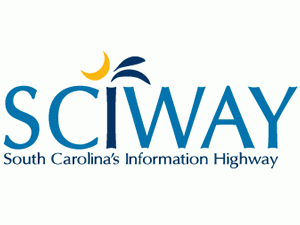 The public spiritedness of our underwriters allows us to bring Charleston Currents to you at no cost. Today we shine our spotlight on SCIWAY. Pronounced “sky-way,” SCIWAY is South Carolina’s Information Superhighway — the largest and most comprehensive directory of South Carolina information on the Internet. It includes thousands of links to other South Carolina Web sites, including Charleston Currents, as well as an amazing collection of maps, charts, articles, photos and other resources.
The public spiritedness of our underwriters allows us to bring Charleston Currents to you at no cost. Today we shine our spotlight on SCIWAY. Pronounced “sky-way,” SCIWAY is South Carolina’s Information Superhighway — the largest and most comprehensive directory of South Carolina information on the Internet. It includes thousands of links to other South Carolina Web sites, including Charleston Currents, as well as an amazing collection of maps, charts, articles, photos and other resources.
- To learn more about this extraordinary information hub that 7 million people visit a year, go to: http://www.SCIWAY.com.
- To meet all of our underwriters, click here.
New aquatic center opens in time to beat summer heat
Staff reports | A new 6,000 square-foot seasonal outdoor pool officially opened Friday in Hollywood to give people in the western part of Charleston County a great place to beat the heat and swim as summer begins.
 “As the 2019 summer swim season begins, the Charleston County Parks and Recreation Commission (CCPRC) is proud to offer the first public pool in the Hollywood area,” said CCPRC Executive Director David Bennett. “This facility represents significant progress toward supporting drowning prevention initiatives by offering swim safety and recreation programs to the community. We look forward to the community taking full advantage of the aquatic center this summer.”
“As the 2019 summer swim season begins, the Charleston County Parks and Recreation Commission (CCPRC) is proud to offer the first public pool in the Hollywood area,” said CCPRC Executive Director David Bennett. “This facility represents significant progress toward supporting drowning prevention initiatives by offering swim safety and recreation programs to the community. We look forward to the community taking full advantage of the aquatic center this summer.”
The $3 million complex known as the West County Aquatic Center is located at 5156 Highway 165 in Hollywood near the new Hollywood Town Hall. Its pool for beginning and seasoned swimmers is called the Genesis Pool, named in honor of Genesis Holmes, a young Hollywood resident who drowned in 2014. The complex was funded by the Charleston County Parks and Recreation Commission and its nonprofit partner, the Charleston County Parks Foundation.
According to a press release, the Genesis Pool is 25 yards long, with a zero-depth entry area, and other areas with depths of up to 4.5 feet. It features eight lanes for lap swimming. Lifeguards will be on duty at the pool. The facility will also feature restrooms, showers and a changing area.
Programming at the West County Aquatic Center will include swimming lessons, water fitness and the eventual development of youth swim teams. It is expected to serve as many as 10,000 people each season in the Hollywood/Baptist Hill area and surrounding communities.
The pool will be open daily this season through Labor Day. Admission is $2 per person and season-long memberships are available for $25 plus tax. CCPRC Gold Passes will be accepted and will admit up to four guests per pass. Hours and open swim times vary; for details, visit CharlestonCountyParks.com.
The West County Aquatic Center is the first public pool in the Hollywood area. According to the Centers for Disease Control and Prevention, 10 people die every day from unintentional drowning. Of these, two are aged 14 or younger.
In other Good News:
![]() Special legislative session starts Tuesday. State lawmakers on Tuesday will reconvene to address gubernatorial vetoes. There aren’t many vetoes to address, and most are small. See previous coverage here.
Special legislative session starts Tuesday. State lawmakers on Tuesday will reconvene to address gubernatorial vetoes. There aren’t many vetoes to address, and most are small. See previous coverage here.
New members. A tip of the hat of public service to the new presidents of two local colleges, the College of Charleston’s Andrew Hsu and The Citadel’s Glenn Walters, who have been elected to three-year terms to serve on the board of directors of the Tri-County Cradle to Career Collaborative. Read more.
On top 10 list for children’s hospitals. Congratulations to MUSC Children’s Hospital, which again is the only institution in South Carolina to be ranked among U.S. News & World Report’s 2019-20 edition of America’s Best Children’s Hospitals. The leading specialties for MUSC Children’s Hospital include: No. 7 for cardiology and heart surgery, No. 25 for nephrology, No. 38 for gastroenterology and GI surgery, No. 40 for cancer and No. 40 for orthopedics. This is the 12th consecutive year that the top 10-ranked cardiology and heart surgery program has made the overall Best Children’s Hospitals list.
Racial justice group takes over July 10 rally at Statehouse. For the last three years, July 10 has been a day for Confederate flag supporters to rally at the Statehouse. But four years after the Confederate flag was removed from its grounds, the Statehouse will be home to a rally of Columbia group Showing Up for Racial Justice. Read more.
Lower prices. The state is working on ways to lower the costs of prescription drugs, Statehouse Report correspondent Lindsay Street reports in the most recent issue. Starting in 2021, A pharmacist in South Carolina will no longer be penalized for telling a patient that paying cash for his or her drugs may be cheaper than the copay. More changes are being considered. (How about moving a little faster than 2021. Insider tip: Want to save on prescription drugs now? You can ASK your pharmacist if there is a cheaper option.) Read the full story.
Voting on climate. A new book by a College of Charleston professor suggests voters might be ready to take action at the voting booth because of climate change. In this story, Street writes: “‘People are starting to actually vote (on climate change issues),’ Matt Nowlin told Statehouse Report. ‘Will environmental issues become something that people actually vote on? Because it hasn’t historically been the case.’ Nowlin recently published Environmental Policymaking in an Era of Climate Change, a book he said he hopes everyone from political science students to 2020 presidential candidates will read.
FEEDBACKSend us your thoughts
We’d love to get your impact in one or more ways:
Send us a letter: We love hearing from readers. Comments are limited to 250 words or less. Please include your name and contact information. Send your letters to: editor@charlestoncurrents.com. | Read our feedback policy.
Tell us what you love about the Lowcountry. Send a short comment – 100 words to 150 words – that describes something you really enjoy about the Lowcountry. It can be big or small. It can be a place, a thing or something you see. It might the bakery where you get a morning croissant or a business or government entity doing a good job. We’ll highlight your entry in a coming issue of Charleston Currents. We look forward to hearing from you.
MYSTERYMaybe the toughest yet
Balance is good in life. Last week’s mystery turned out to be easy for many. So here’s a photo that may be the toughest photo puzzle ever. Your only hint is that it was taken in Charleston. Send your guess to editor@charlestoncurrents.com. And don’t forget to include your name and the town in which you live.
Our previous Mystery Photo
 Our June 17 “whereisit” (as opposed to a whodunit) garnered more correct identifications than we expected, probably due to the obvious clue of the tail of a jet in a small part of the photo. Yes, the photo was a hanger at the Boeing plant adjacent to Charleston International Airport.
Our June 17 “whereisit” (as opposed to a whodunit) garnered more correct identifications than we expected, probably due to the obvious clue of the tail of a jet in a small part of the photo. Yes, the photo was a hanger at the Boeing plant adjacent to Charleston International Airport.
The number of people (18) who correctly identified the hanger was two short of breaking the record for most correct identifications. Big booming claps to these sleuths: Jay Altman of Columbia; Jim McMahan, Stewart Weinberg, Legare Clement, Paul Hopersberger, Neal Kinard and Jack Bass, all of Charleston; Chris Brooks of Mount Pleasant; George Graf of Palmyra, Va.; Chuck Boyd of Hanahan; Wendy Kulick of Kiawah Island; Ralph Garris of Great Falls; Marnie Huger of Richmond, Va.; Rachel Knight of North Charleston; Marian Greely and Kristin Wheeler, both of West Ashley; John Abbattista of Seabrook Island; and Bill Segars of Hartsville.
Boyd and others said the hanger was where Boeing paints planes. Boyd noted, “Watched them build the airplane painting structure to avoid the expense of sending completed planes to Texas to add tail logos and carrier colors for individual buyers. Apparently, it can handle two planes at once.”
Graf provided three fun facts about Boeing, according to its website:
- Boeing South Carolina was the company’s first 100 percent renewable energy site. Up to 20 percent of that energy is supplied by more than 18,00 thin-film solar panels (approximately 10 acres) installed on the roof of the 787 Final Assembly building. The solar panels generate up to 2.6 megawatts of energy to power the entire plant as well as the giant autoclaves used to produce the 787 fuselage.
- Boeing South Carolina became the fourth Boeing site to achieve Zero Waste to Landfill status in 2011. No waste generated at the site goes to landfill.
- Since Sept. 2012, Boeing South Carolina has reached more than 100,000 middle and high school students through its DreamLearners Tour Program and Speakers Bureau.
Send us a mystery: If you have a photo that you believe will stump readers, send it along (but make sure to tell us what it is because it may stump us too!) Send it along to editor@charlestoncurrents.com.
S.C. ENCYCLOPEDIAHISTORY: Eight Box Law
S.C. Encyclopedia | The Eight Box Law of 1882 was an election law designed to ensure white supremacy in South Carolina without violating the Fifteenth Amendment, which barred states from depriving their citizens of the vote on the basis of race. Even after the defeat of Reconstruction, Congress still enforced the amendment on several occasions; one such case in 1880 seated an African American candidate for Congress who had lost a fraudulent election. The genius of the Eight Box Law was to sidestep constitutional issues by making no reference to race; instead, African Americans would be deprived of their votes through discriminatory enforcement.
Largely the work of the attorney and legislator Edward McCrady, the law provided for separate ballot boxes for each of eight types of office, including, for example, state senator, state representative, congressman, governor, lieutenant governor, and other statewide offices. Any ballot cast in an incorrect box was disallowed. In an early draft of the law, the only way to identify the boxes was by labels written on them; thus the system served as an effective literacy test. In the final version, however, election managers were required, “on the demand of the voter,” to read the labels to the voter. This provision allowed for discriminatory enforcement: the election manager could read the correct labels to an illiterate white man but read incorrect labels to an illiterate black man. Such action would be a violation of state law, not federal law, and would be difficult to prove in court.
Many southern states during the 1880s and 1890s attempted to disenfranchise blacks by deception. South Carolina’s system of multiple ballot boxes was a unique innovation. Other provisions of the 1882 law, however, may have contributed at least as much to disfranchisement. In addition to the voting procedure described above, the law also established an extremely restrictive registration process.
The law was dramatically successful in fulfilling its intent: to maintain white supremacy without provoking intervention by the federal government. Whereas in 1880 as many as 58,000 blacks had voted in South Carolina, by 1888 the number was reduced to fewer than 14,000. This drastic reduction was accomplished despite less resort to fraud and violence by whites. The 1895 constitution reduced still further the number of black South Carolinians who managed to vote, but most of the work of disfranchisement had been accomplished by the 1882 law.
— Excerpted from an entry by Hyman S. Rubin III. This entry may not have been updated since 2006. To read more about this or 2,000 other entries about South Carolina, check out The South Carolina Encyclopedia, published in 2006 by USC Press. (Information used by permission.)
ON THE CALENDARCALENDAR: Author to discuss book on race in Reconstruction
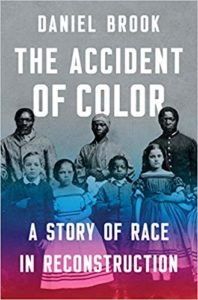 Staff reports | Author Daniel Brook will discuss his book, The Accident of Color: A Story of Race in Reconstruction, at 5 p.m. June 25 in a collaborative program between Grace Church Cathedral, Mount Zion AME Church and Blue Bicycle Books.
Staff reports | Author Daniel Brook will discuss his book, The Accident of Color: A Story of Race in Reconstruction, at 5 p.m. June 25 in a collaborative program between Grace Church Cathedral, Mount Zion AME Church and Blue Bicycle Books.
The talk will be at 5 p.m. at Grace Cathedral, 98 Wentworth Street, Charleston.
According to the publisher, the book offers “a technicolor history of the first civil rights movement and its collapse into black and white. It brings us to 19thcentury New Orleans and Charleston and introduces us to their cosmopolitan residents who eluded the racial categories the rest of America took for granted.”
Brook, whose work has appeared in Harper’s, the New York Times Magazine and The Nation, is a New York native who now lives in New Orleans. Copies of the book will be available at the June 25 talk.
Also on the calendar:
Events at the Gaillard. Check out these awesome coming events at the Charleston Gaillard Center, 95 Calhoun St., Charleston:
TheSkimm Night Out. 7:30 p.m., June 25. The founders of theSkimm are coming to your city for a fun night out, full of empowering conversation, networking, cheersing, and more to celebrate their new book, How to Skimm Your Life. Tickets are $48 to $150. More.
Frankie Valli and The Four Seasons: 7:30 p.m., June 29. Join the legendary Frankie Vallie and the Four Seasons, which had 71 chart hits through the years, at this show that will show the group is hotter than ever. Remaining tickets start at $78.
Lecture on Washington: 6:30 p.m., June 27, Charleston Museum, 360 Meeting St., Charleston. David L. Preston, a professor of national security studies at The Citadel, will deliver a lecture titled, “Why George Washington’s leadership still matters.” Hosted by the American Revolution Institute, a reception will start 45 minutes before the lecture. You can register online and need to do so by June 20. Cost: $25.
Carolina Day concert: 12:30 p.m., June 28, White Point Gardens, Charleston. On this day back in 1776, a British fleet pounded Sullivan’s Island and landed troops to take what is now Fort Moultrie, but were repelled by patriots in what became their first significant victory. You can listen to period music at The Battery in downtown Charleston as performed by the Charleston Concert Band.
Food truck Friday: 5 p.m. to 8 p.m., June 28, The Ponds, 326 Hundred Oak Parkway, Summerville. You can enjoy food and popular gatherings with entertainment from Ocean Drive and several food trucks, including Smokin’ Gringos, Happy Thai, Greekin Out, Krystyna’s, Holy City Cupcakes, Booze Pops, and Pelican Sno Balls. It is recommended that attendees bring chairs and blankets. Coolers and BYOB are allowed.
Prince of Scribes Writers Conference: 10 am. to 6 p.m., June 29, Charleston Circular Church, 150 Meeting St., Charleston. Contributing editor Marjory Wentworth is among the writers in this all-day event featuring four workshops and a panel discussion remembering author Pat Conroy. Cost: $50, and includes a closing reception. Learn more and register.
Shear Madness: Shows through June 30, West Ashley Theatre Center, 1401 Sam Rittenberg Center, West Ashley. Charleston Stage’s first show produced at its new Pearl Theatre will be the hilarious, award-winning Shear Madness, longest-running play in American theatre history. Learn more and get tickets here.
Early morning bird walks at Caw Caw: 8:30 a.m. every Wednesday and Saturday, Caw Caw Interpretive Center, Ravenel. You can learn about habitats and birds, butterflies and other organisms in this two-hour session. Registration is not required, but participants are to be 15 and up. $10 per person or free to Gold Pass holders. More: http://www.CharlestonCountyParks.com.
AREA MARKETS
![]() TUESDAYS. The Mount Pleasant Farmers Market is every Tuesday from 3:30 p.m. to 7 p.m. at the market pavilion at Moultrie Middle School, 645 Coleman Blvd., Mount Pleasant. Free parking. Lots of activities. More info.
TUESDAYS. The Mount Pleasant Farmers Market is every Tuesday from 3:30 p.m. to 7 p.m. at the market pavilion at Moultrie Middle School, 645 Coleman Blvd., Mount Pleasant. Free parking. Lots of activities. More info.
WEDNESDAYS. The West Ashley Farmers Market is every Wednesday from 3 p.m. to 7 p.m. in Ackerman Park off Sycamore Avenue in West Ashley. The last week of the market will be the first week of October. More.
FRIDAYS/SATURDAYS: Night Market. Every Friday and Saturday from 6:30 p.m. to 10:30 p.m. for the rest of the year, you can shop with 108 vendors, including artists and craftsmen, at the night market on Market Street between East Bay and Church streets. It’s more than four blocks of local shopping and fun. Free.
SATURDAYS: Johns Island Farmers Market operates each Saturday from 9:30 a.m. to 1:30 p.m. year-round with more than 50 local farmers and vendors, food trucks, music and more. The market is located on the campus of Charleston Collegiate School, 2024 Academy Road, Johns Island
SATURDAYS: The Charleston Farmers Market is open 8 a.m. to 2 p.m. in Marion Square each Saturday through Nov. 30. More info.
- If you have an event to list on our calendar, please send it to feedback@charlestoncurrents.com for consideration. The calendar is updated weekly on Mondays.
If you like what you’ve been reading, how about considering a contribution so that we can continue to provide you with good news about Charleston and the Lowcountry. Interested? Just click the image below.
NOW AVAILABLENow in paperbrack, err, paperback
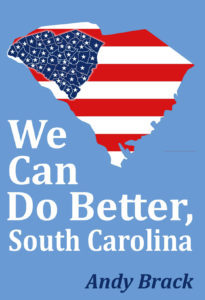 We Can Do Better, South Carolina! offers incisive commentaries by editor and publisher Andy Brack on the American South, the common good and interesting South Carolina leaders, such as former U.S. Sen. Fritz Hollings, civil rights advocate Septima Clark, former S.C. Gov. David Beasley and more. There also are discussions on civil rights struggles with which the Palmetto State continues to grapple. as well as commentaries on politics, governments, the hangovers of South Carolina’s past and her future opportunities.
We Can Do Better, South Carolina! offers incisive commentaries by editor and publisher Andy Brack on the American South, the common good and interesting South Carolina leaders, such as former U.S. Sen. Fritz Hollings, civil rights advocate Septima Clark, former S.C. Gov. David Beasley and more. There also are discussions on civil rights struggles with which the Palmetto State continues to grapple. as well as commentaries on politics, governments, the hangovers of South Carolina’s past and her future opportunities.
We Can Do Better, South Carolina! is available for $14.99 in paperback or as a Kindle book for $7.99. Click here to purchase your copy. A paperback version will be ready for order soon.
- If you have a comment or questions about the book, please let us know at: editor@charlestoncurrents.com
OUR UNDERWRITERS
Charleston Currents is an underwriter-supported weekly online journal of good news about the Charleston area and Lowcountry of South Carolina.
- Meet our underwriters
- To learn more about how your organization or business can benefit, click here to contact us. Or give us a holler on the phone at: 843.670.3996.
OUR TEAM
Charleston Currents offers insightful community comment and good news on events each week. It cuts through the information clutter to offer the best of what’s happening locally.
- Mailing address: O. Box. 22261 | Charleston, SC 29413
- Phone: 670.3996
Charleston Currents is provided to you weekly by:
- Editor and publisher: Andy Brack, 843.670.3996
- Contributing editor, common good, Fred Palm
- Contributing editor, money: Kyra Morris
- Contributing editor, Palmetto Poem: Marjory Wentworth
- Contributing editor, real estate: Digit Matheny
- Contributing editor, AT: Jerry Adams
- Contributing photographer: Rob Byko
SUBSCRIBE FOR FREE
Subscriptions to Charleston Currents are free.
- Click here to subscribe.
- We don’t want to lose you as a reader of Charleston Currents, but if you must unsubscribe, you will have to do it through the email edition you receive. Just go to the bottom of any of your weekly newsletters and click the “unsubscribe” function. If that doesn’t work, please send us an email with the word “unsubscribe” in the subject line.
- © 2008-2019, Statehouse Report, LLC. All rights reserved. Charleston Currents is published every Monday by Statehouse Report LLC, PO Box 22261, Charleston, SC 29413.


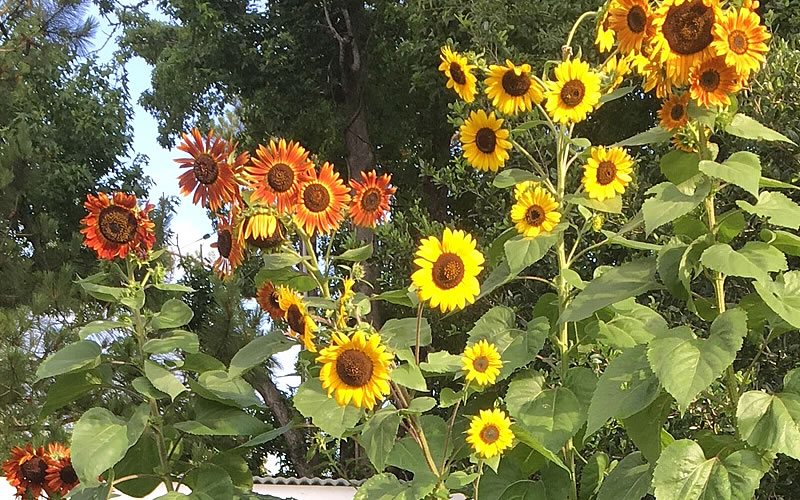
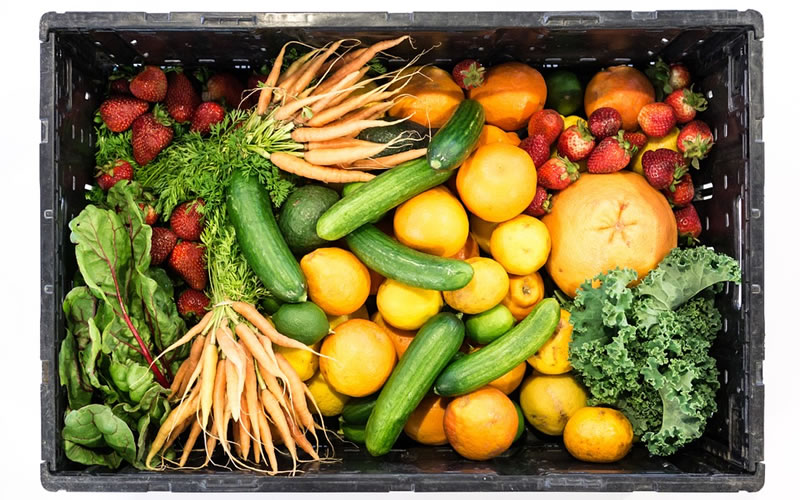
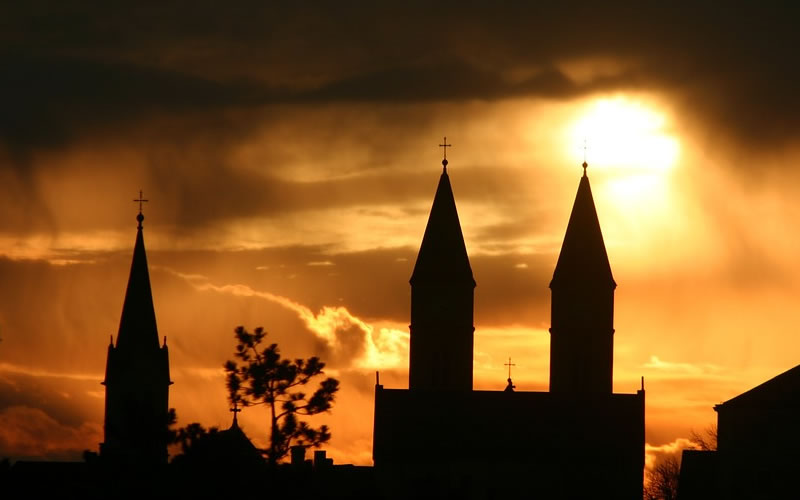
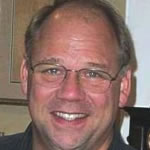


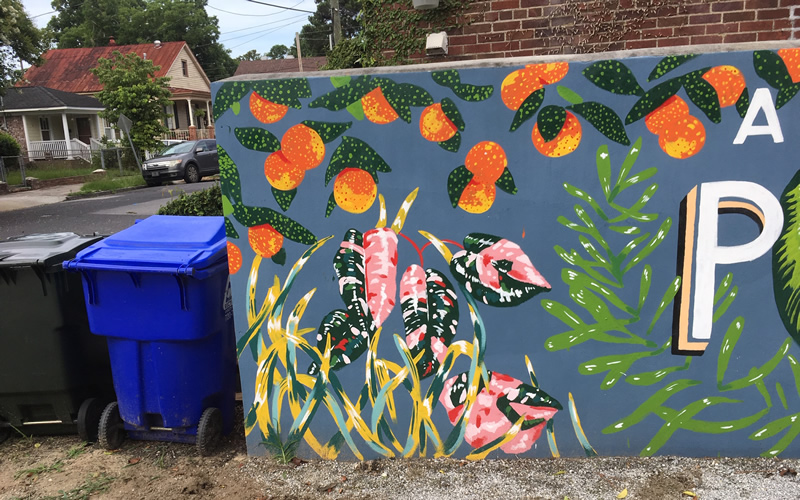
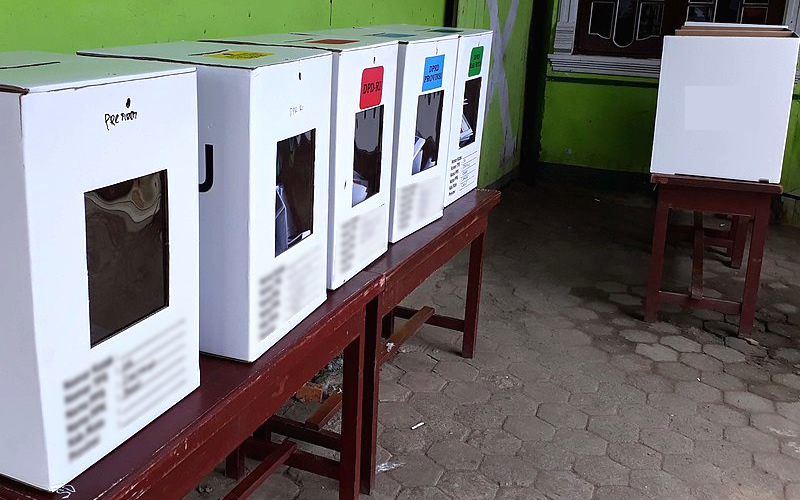

 We Can Do Better, South Carolina!
We Can Do Better, South Carolina!
























